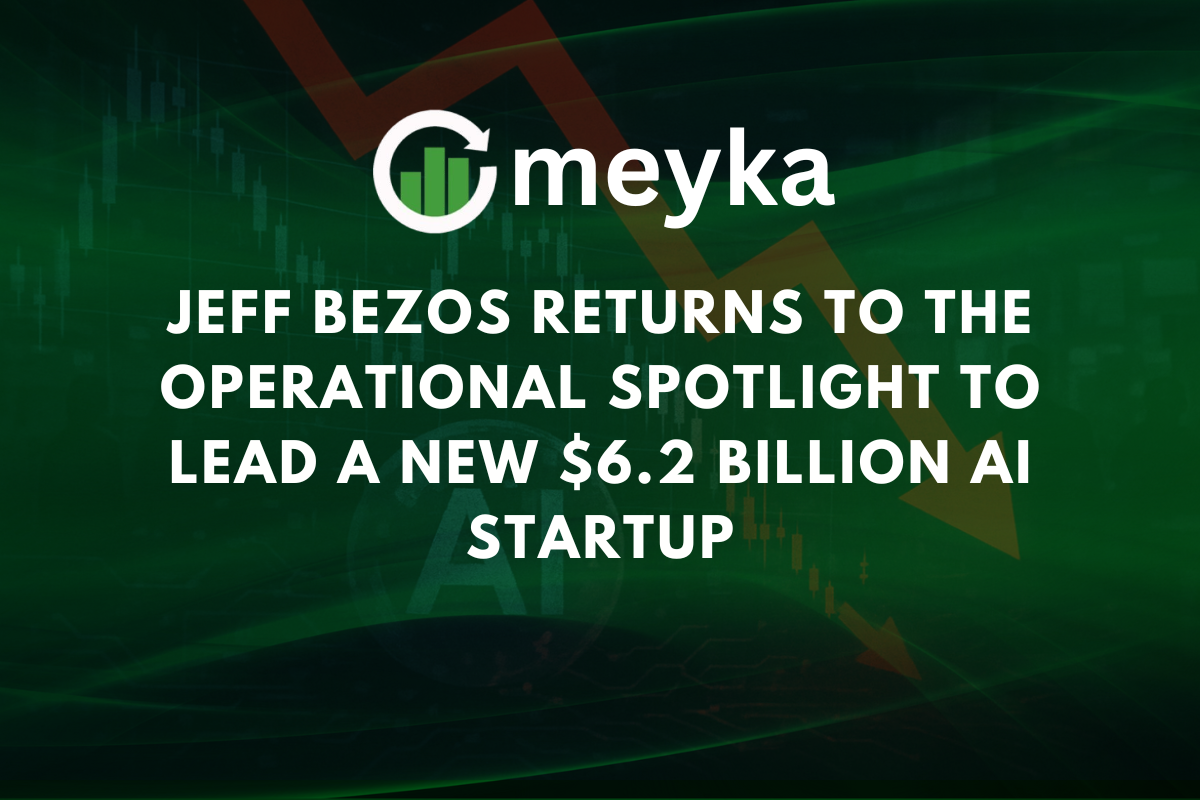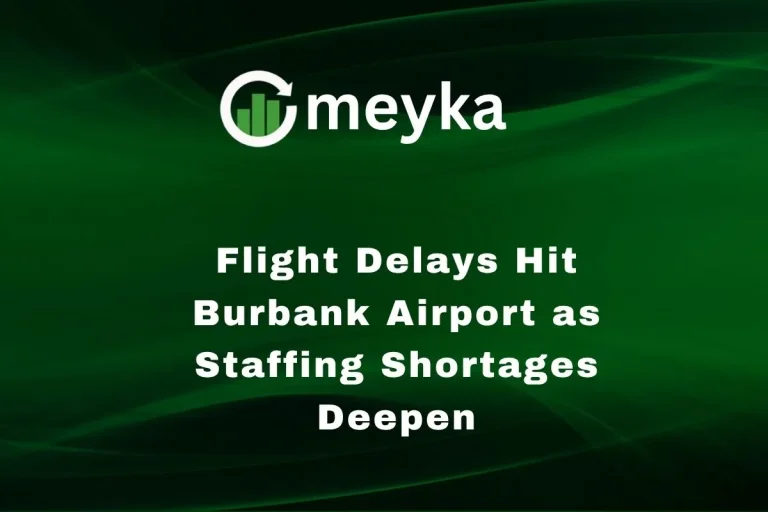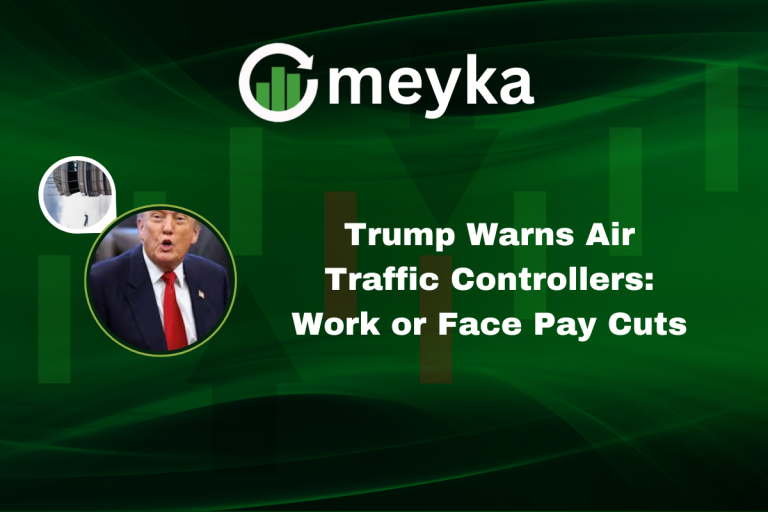Jeff Bezos to Spearhead New $6.2 Billion Artificial Intelligence Startup
In a major development in the tech world, veteran entrepreneur Jeff Bezos is stepping back into a formal executive role by co-leading an artificial intelligence startup that has already raised approximately $6.2 billion in funding. The new venture, named Project Prometheus, is reputedly focused on applying AI to manufacturing, engineering and advanced technologies.
This marks Bezos’s first operational leadership role since he stepped down as CEO of Amazon.com, Inc. in July 2021, a move that has stirred both excitement and questions across the investment and tech communities.
What exactly is Project Prometheus? Project Prometheus is described as an ambitious startup building AI tools for the engineering and manufacturing sectors, including computers, automobiles and spacecraft. Its funding of $6.2 billion reportedly comes partly from Bezos himself, making it one of the best-funded early-stage AI firms globally.
Why is this happening now? Why is Jeff Bezos entering this space with such scale?
Several reasons align:
- There is a surge in demand for AI capabilities across manufacturing and high-tech engineering.
- Bezos already has deep interests in aerospace (through Blue Origin) and robotics, so this moves his ambitions forward.
- With the AI race accelerating among firms like OpenAI, DeepMind, and Meta Platforms, Inc., Bezos is positioning himself in a high-stakes battleground.
Who is on board, and what’s the team like? The leadership of Project Prometheus reportedly pairs Jeff Bezos as co-CEO with physicist-chemist Vik Bajaj, who comes from Google X (the “moonshot” research arm). The startup has already hired nearly 100 employees, including researchers drawn from elite AI outfits like OpenAI, DeepMind, and Meta.
Strategic Implications of Jeff Bezos’ Move into AI
The entry of Jeff Bezos into a high-funded AI venture signals a major shift for several industries:
- Manufacturing: The fusion of AI with real-world manufacturing processes (automobiles, aerospace, computing hardware) hints at potential productivity leaps.
- Engineering & aerospace: With his Blue Origin background, Bezos’s move suggests the startup may play into space technology, advanced materials and next-gen engineering.
- Tech competition: Project Prometheus adds a new heavyweight competitor to the AI ecosystem, raising the pressure on established players.
What does this mean for Amazon and Bezos’s role? Not exactly. While Bezos left as Amazon CEO in 2021, he remains the company’s founder and retains significant influence. This new role shows his focus expanding beyond Amazon into next-gen tech. Some market watchers suggest that investor concerns might arise about his attention being split between ventures.
Could this affect Amazon’s business? Potentially yes. Bezos’s shift into AI operations may heighten Amazon’s competitive edge in cloud, robotics and AI. Yet it may also raise questions about resource allocation, talent retention and strategic focus.
Risks and Opportunities Ahead for Jeff Bezos and Project Prometheus
- First-mover advantage: Large funding means Project Prometheus can scale rapidly and attract top talent.
- Cross-industry impact: Instead of only consumer-facing AI, the startup targets heavy industry and engineering sectors with a high barrier to entry.
- Synergies with Bezos’s other ventures: His involvement with Blue Origin and other deep-tech investments may create beneficial overlap.
Key Risks
- Execution risk: Building AI for manufacturing and aerospace is complex; many startups stumble from prototype to industrial scale.
- Competition: The AI arms race is intense; even well-funded firms must deliver fast to keep pace with OpenAI, Google, Meta, and others.
- Market perception: Investors may question whether Bezos’s transition to an operational role could distract from his other commitments or fragment his focus.
What to watch for soon?
- Announcements of products or partnerships by Project Prometheus in manufacturing, aerospace, or tech supply chains.
- Talent hires from major AI labs, or key collaborations with automakers, chip manufacturers, or space firms.
- Public disclosures of methodology or technology stack: Will the firm lean into foundational models, robotics, edge AI, or hybrid systems?
- Impact on Amazon, Blue Origin, and other companies associated with Bezos, both competitive and collaborative.
Why This Move Reflects Broader Trends
How does this align with wider AI and tech trends?
Several long-term themes:
- The shift from consumer-software AI (chatbots, web apps) into industrial AI for manufacturing, hardware, and aerospace. Project Prometheus exemplifies this.
- Deep-tech investment is growing: Valley firms and global VCs are pushing billions into next-generation AI beyond just language models.
- Founder-led innovation: High-profile tech founders are taking more hands-on roles in new ventures; Bezos’s operational re-entry underscores this pattern.
- Convergence of AI, robotics, aerospace and manufacturing: These previously distinct sectors are increasingly merging, and Project Prometheus sits at this intersection.
Conclusion
The spotlight is firmly on Jeff Bezos as he steps into a leadership role with Project Prometheus, a startup that blends his aerospace ambitions, AI interest and manufacturing vision into one enterprise. With a hefty $6.2-billion war-chest and a top-tier team, the stage is set for a major leap. But the stakes are high.
Execution, timing, talent and competition will determine whether this becomes a defining chapter in tech history, or a cautionary tale of over-reach. Either way, the world will be watching.
Disclaimer
The content shared by Meyka AI PTY LTD is solely for research and informational purposes. Meyka is not a financial advisory service, and the information provided should not be considered investment or trading advice.






